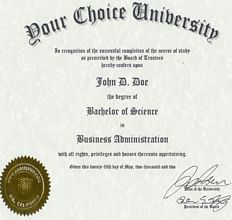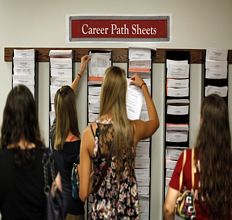GOOGLE ADSENSE
Private Student Loan FAQ's
This is the second part of a series on things you need to know about Private Student Loans. In (Part 2) we answer some frequently asked questions. You should never sign on the dotted line for any private student loan until you throughly understand what you're getting into. Check out these frequently asked questions... Must I Apply For Financial Aid Prior To Applying For a Private Student Loan? Are Private Student Loans Backed By The U.S. Government? What Paperwork Am I Required to Fill Out To Receive a Private Student Loan? How Are Private Student Loans Disbursed? For certified loans, funds are usually disbursed directly to the financial aid office at your school. For loans not requiring certification by the school, funds are usually delivered by check directly to the borrower or loan carrier. When Do The Payments Start On a Private Student Loan? What Are The Eligibility Requirements For a Private Student Loan? What If My Credit Score Is Low? Do I Need a Co-Signer for a Private Student Loan? How Much Will The Private Student Loan Cost Me? Brad Matheson is a professional Financial Consultant who specializes in helping businesses and individuals resolve their debt issues. He believes that all debt problems can be solved with the right debt advice and aspires to help Americans learn all of their debt options and exercise all of their rights. Says, Matheson, “Don't allow the Student Loan Debt crisis or a Defaulted Student Loan to hinder or block your career aspirations or stymie your financial dreams.” Source: http://studentloanwhiz.com/
| |
|
Student Loan and Financial Aid Educational
Resources:
Financial Aid
| Money for College
| Federal
Student
Loan | College Scholarship Search
Minority Scholarship | College Grants
| College Search | Perkins Loans | Stafford
Loans
Parent PLUS
Loans | GradPLUS
Loans | College
Scholarships | Private
Student Loan
Student Consolidation Loans | Financial Aid Acronyms | Financial Aid Glossary
StudentLoanWhiz.com is a leading information portal dedicated to helping students and their families find the financial resources they need to complete their education goals. StudentLoanWhiz.com is your trusted resource for student loans for schools in the United States. Whatever your needs, we’re here to simplify the process by providing an unbiased evaluation of virtually every type of student loan available. You provide the will and we'll help make the way.
About Us | Contact Us | Privacy Policy | Terms of Use | Disclaimer
Home | U.S. Department of Education | College News | Site Map
Copyright © Student Loan Whiz, 2007-2012 All Rights Reserved.
Powered by the Student Loan
Whiz











